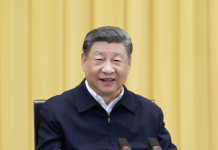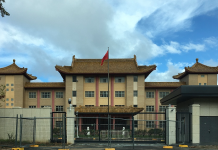BEIJNG: China-Pakistan cooperation in seed, the “core” of agriculture, is high on the agenda as the China Pakistan Economic Corridor (CPEC) enters the second phase to focus on agriculture cooperation and other sectors of social welfare.
China used to be plagued by a severe shortage of seeds, with over 90% of cotton seeds exported from overseas. Thanks to the promulgation of Seed Law in 1999 and its revised version in 2016, which led to a growing attention to seed security and seed investments, China has transformed itself from a major seed importer to a seed breeding powerhouse – exploring the 4th generation of breeding of combining conventional breeding, biotechnology and information technology.
Against this background, China National Chemical Corporation has emerged as one of the international seed giants.
At the China-Pakistan Seed Industry Cooperation and Exchange Forum held on March 18, agricultural experts from China and Pakistan offered insights on how to further promote bilateral cooperation in the seed industry.
As one of the top 10 major wheat producers in the world, Pakistan has a wheat acreage of about 130 million mu (about 2.14 million acres), which accounts for 44% of the total arable land in the country, but its average yield merely stands at an estimated 200 kg/ mu. The disproportionately low output, coupled with a draught and a locust infestation last summer, has led the country to increase wheat imports to stem rising flour prices from supply shortage.
In 2019, wheat output in Pakistan stood at around 2,800 kg/ha, 20% lower than the world’s average of 3,550 kg/ha. In view of this gap, Dr Zhang Shengquan of the Beijing Academy of Agricultural and Forestry Sciences said, “In 2012, we carried out joint R&D on two-line hybrid wheat in Pakistan, and achieved an average increase of more than 20 % in wheat production, and last year, we brought that figure to 50% and even up to 70%.”
The potential of China’s hybrid wheat is further emphasised by Shahzad Ali Malik, CEO of GUARD AGRI, during his interview. GUAED AGRI was the first Pakistani agricultural company to introduce Chinese hybrid wheat, and despite the “challenge-laden” process, the company remains confident that Chinese hybrid wheat will help boost food production in Pakistan.
“Chinese seed companies follow professional and good ethics, valuing quality and honouring commitments. Both sides have stuck to the principle of security and win-win cooperation. It is the base on which Pakistan and Chinese agriculture businesses have maintained strong cooperation.”
The reasons for limited wheat production in Pakistan include low yield potential of seed varieties, mismanagement, high temperature and drought, and severe rust damage, etc.
The drought-resistant and infertility-resistant traits of Chinese hybrid wheat make it a suitable variety to be introduced in Pakistan.
Dr Li Hui from the breeding team of the Hebei Academy of Agricultural and Forestry Sciences said that China’s Hebei, with its natural conditions similar to those of Pakistan, has been dedicated to the R&D of draught-resistant, water-saving wheat varieties to achieve replicably stable and huge production. – Agencies






